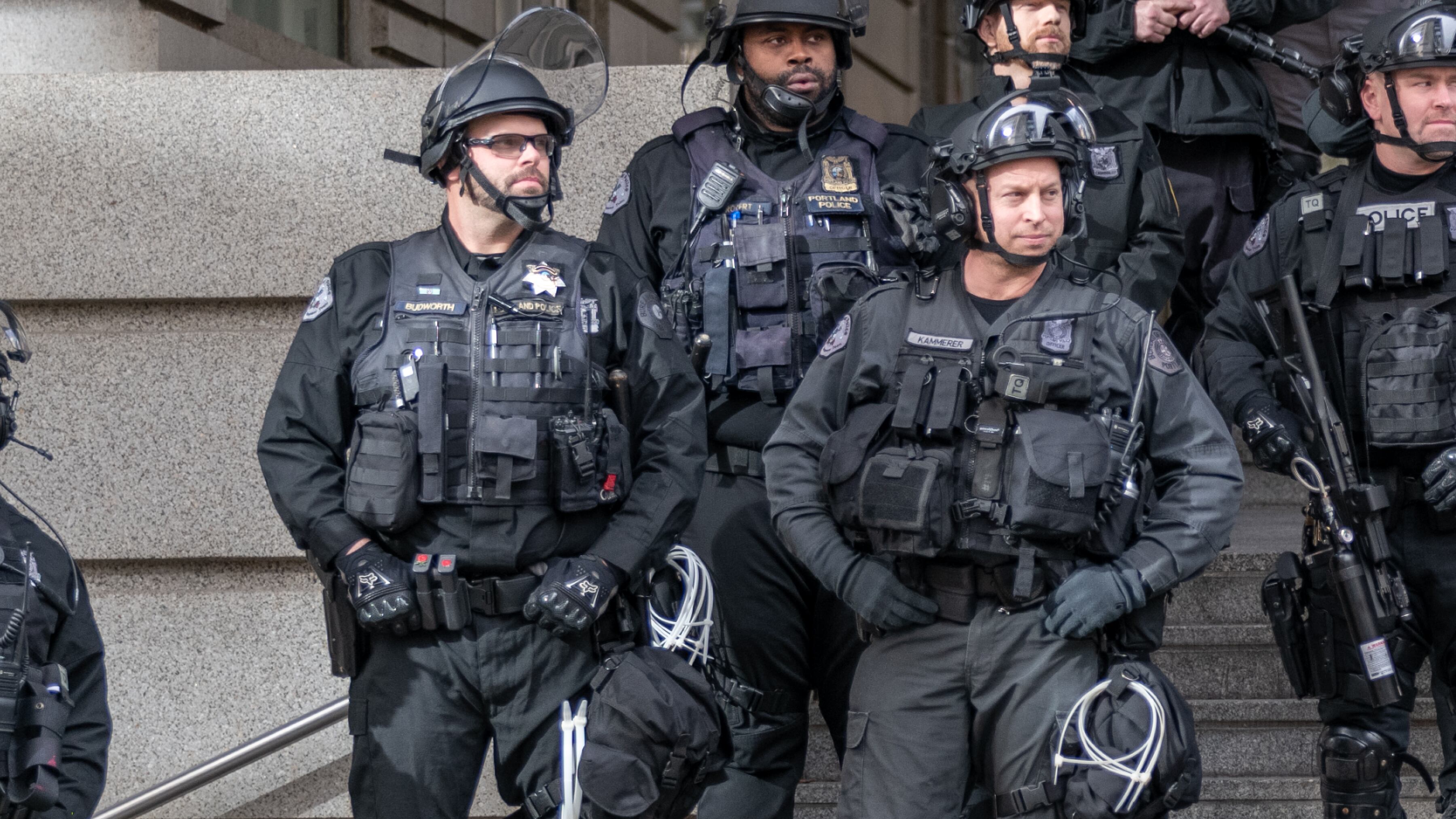A Portland resident today filed a federal civil rights lawsuit against the city and a high-profile Portland police detective who he says injured him by knocking him to the pavement during a 2020 protest in front of downtown courthouses.
In the lawsuit, filed Wednesday afternoon in U.S. District Court in Portland, Tyler Vontillius says Portland Police Detective Erik Kammerer knocked him and several other protesters to the ground on June 27, 2020. Vontillius says he hit his head on the pavement and suffered a traumatic brain injury.
“After Defendant Kammerer knocked these protesters to the ground, he walked away from the protest line,” the lawsuit alleges. “He never attempted to arrest anyone, including plaintiff, or deescalate. He just chose violence.”
The allegations in the lawsuit are not unusual. Dozens of lawsuits have been filed against law enforcement officers in the wake of 100 consecutive nights of protests, where federal and local police officers regularly declared riots and deployed tear gas and munitions into crowds.
What is unusual is that the lawsuit identifies Kammerer by name. That’s possible because a WW investigation revealed that the riot squad officer wearing helmet number “67″ at protests was Kammerer.
The lawsuit includes video clips showing an officer with that number on his helmet knocking people to the ground on June 27, 2020.
Kammerer became well known after a Black resident of Southeast Portland, Elijah Warren, accused him of hitting him in the head with a baton after Warren complained of tear gas seeping into his home. The Oregon Department of Justice conducted a criminal investigation of Kammerer, but in February found “insufficient evidence” to bring criminal charges against him. (Warren’s own lawsuit is ongoing.)
Another reason the lawsuit is noteworthy: Vontillius’ attorneys at the Oregon Justice Resource Center say Kammerer’s alleged actions are part of a “pattern and practice of using unlawful force against protesters to chill their speech.” They point to evidence uncovered in previous lawsuits against the city—including a police training slide that vowed to unleash violence against a “dirty hippy.”
Juan C. Chavez, one of Vontillius’ attorneys, says that evidence is included in today’s lawsuit to demonstrate a pattern of recklessness by city officials that allowed officers to brutalize protesters. That, he says, means Vontillius can sue the city as well as Kammerer.
“Time and time again, the city moves to dismiss, saying we don’t have enough evidence to establish a pattern and practice,” says Chavez. “Well, guess what? We do. The city is condoning this behavior because they want protesters to in fact shut up.”
The Portland Police Bureau and Kammerer did not immediately respond to requests for comment.
